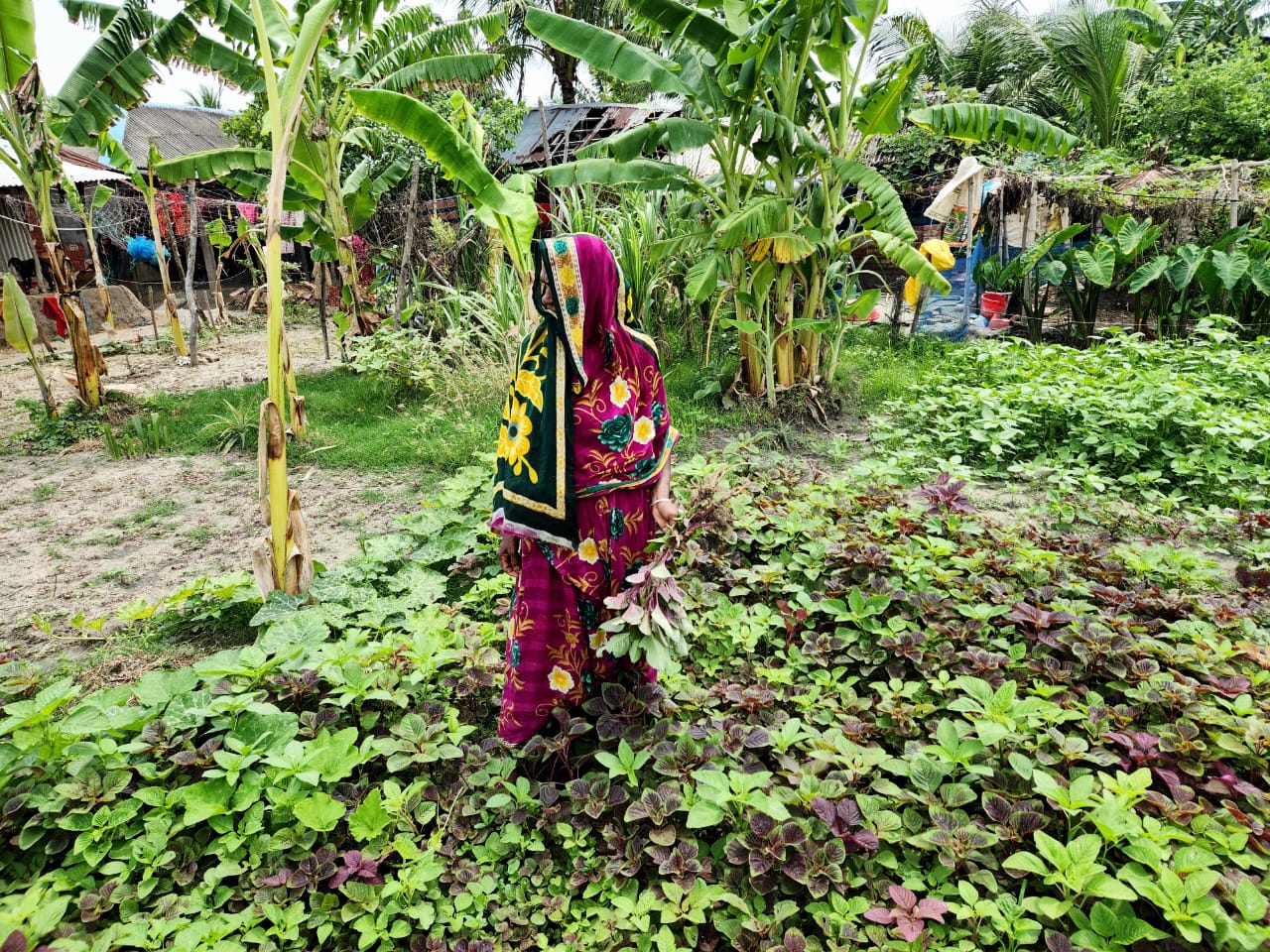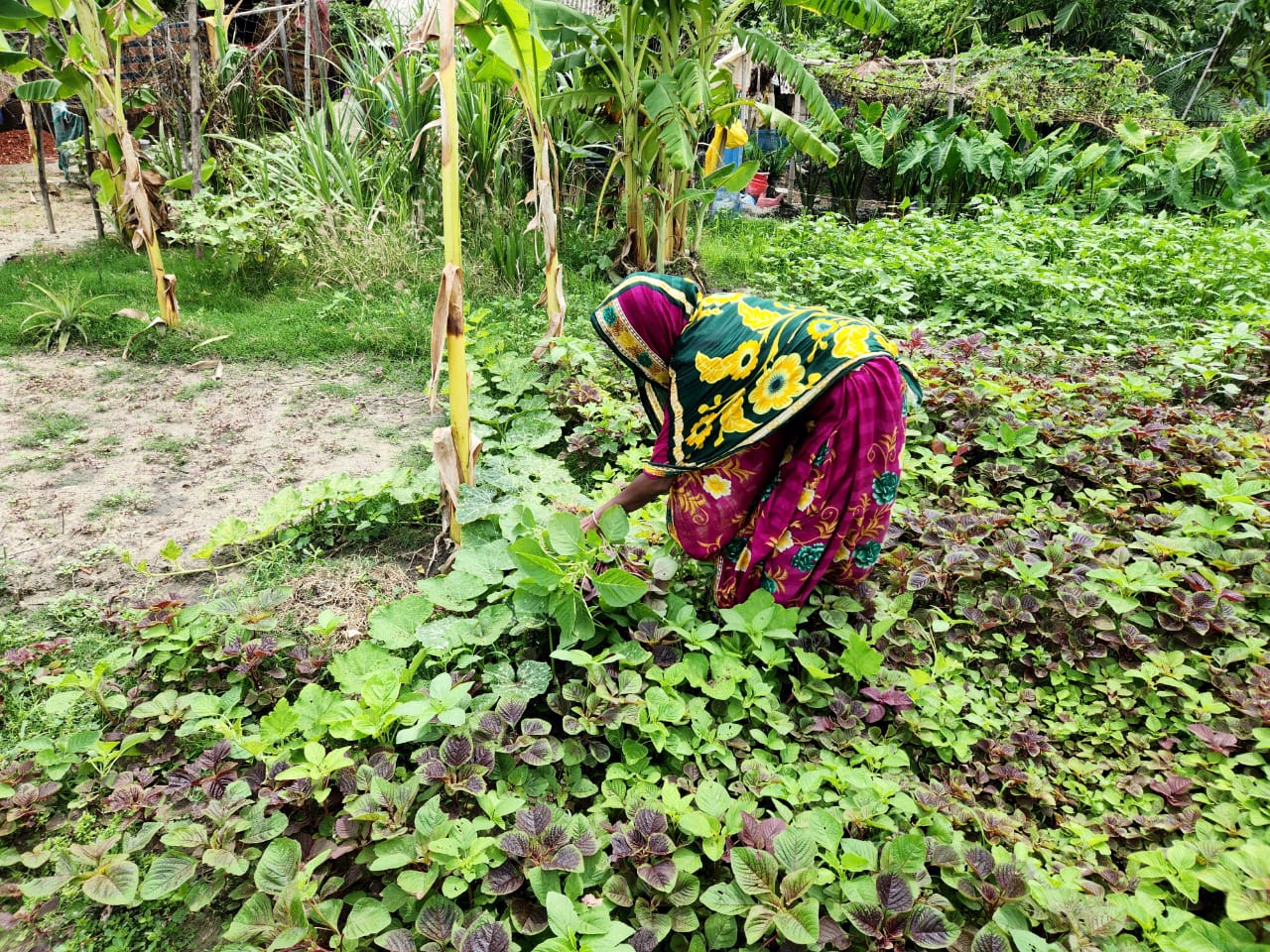Rahima Khatun’s life has been shaped by challenges. She lives with her husband, one of her sons, his wife, and their child. Her two other sons have married and moved out. Her husband, now elderly, is unable to work much, and the son who lives with them is only able to earn seasonally. Together, their incomes are not enough to support the family of five.
With no land in their name, they faced not just financial uncertainty but also a lack of food security.
But Rahima is not one to be intimidated by obstacles. Through sheer determination and persistence, she turned her hardship into an opportunity.

Rahima Khatun grows a multitude of vegetables on her yard.
A Natural Leader in the Field
When SAJIDA Foundation’s ENGAGE4Sundarbans project started its ethnographic research, Rahima was selected as research participant due to her involvement with agriculture. She spoke candidly during interviews, sharing her farming knowledge and the struggles that came with having limited land and financial resources.
From the beginning, Rahima was determined to carve out a space for herself in her family and community. She was surprised and encouraged when she learned she had been selected to join one of ENGAGE4Sundarbans’s intervention groups testing crops with high value addition potential. She was placed in the group assigned to grow fennel along with two other female farmers.
Before long, Rahima became much more than just a participant. She took the lead in group planning, organised meetings, and became an active figure in project activities. Even her husband began to support her involvement, gradually letting go of his initial doubts.
As part of ENGAGE4Sundarban project’s group farming initiative, she now cultivates rice, grains, and vegetables on the land next to her home. In another small plot of just two decimals, she farms freshwater fish for her family’s consumption. Her yard, too, has a multitude of vegetables growing. Years ago, her elder son started building a roofed house, but financial constraints postponed the construction. Rahima, ever resourceful, transformed the unfinished structure into yet another thriving vegetable garden.

Through determination and persistence, Rahima has turned her hardship into an opportunity.
A Home Garden to Ensure Food Security
What truly sets Rahima’s farming apart is her commitment to diversity. During the monsoon, she grows Aman paddy. Once harvested, she uses the same land to plant potatoes, sunflowers, fennel, sesame, and melon during the Rabi season from Mid-November to Mid-March. In other plots, she cultivates mustard alongside red cabbage, spinach, radish, and coriander, aubergine, onions, beans, beetroot, gourd, and winter crops like spring onions, garlic, and chillies also find space in her garden. Her motivation is both practical and personal. She refuses to buy oil or vegetables from the market.
“Why spend money [on oil or vegetables] when I can grow them myself?” Rahima, a traditional farmer and participant of ENGAGE4Sundarbans project, says.
One of Rahima’s long-held dreams was to lease land in her own name, so she could grow rice without depending on others. Her wish came true when ENGAGE4Sundarbans leased land under the names of Rahima and her group members.
Looking ahead, Rahima hopes that by selling fennel in the Rabi season and vegetables during Kharif (Mid-March to Mid-November), she can earn enough to lease more land and commercially scale up her farming.
